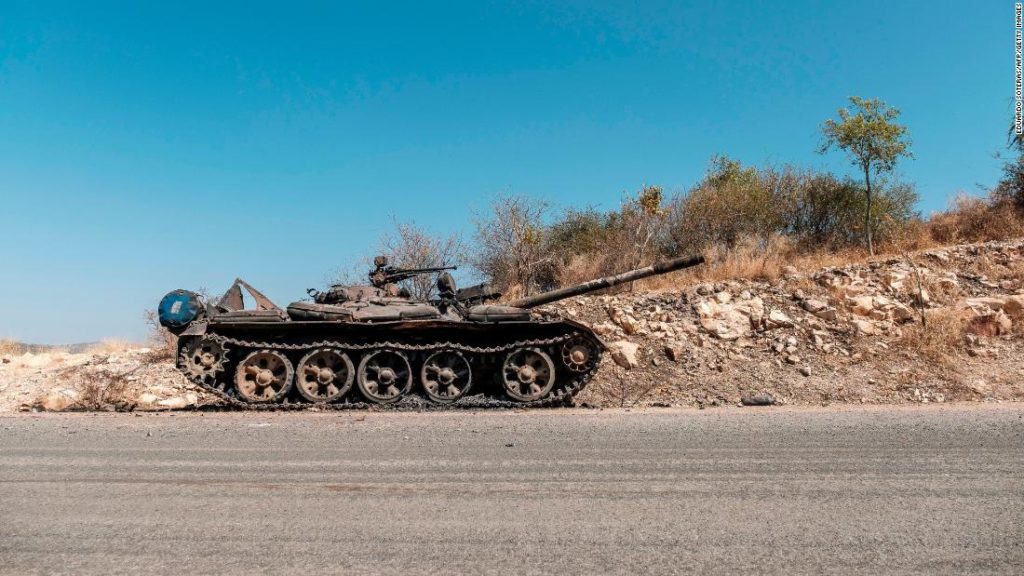“We are not concerned about timing, we are concerned about our final complete success,” said the president of the Tigray region, Debretsion Gebremichael, on Tigray TV Monday night.
On Sunday, Ethiopia’s Prime Minister warned members of the the region’s ruling party, the Tigray People’s Liberation Front (TPLF), to surrender “within the next 72 hours, recognizing that you are at a point of no return.”
But TPLF spokesperson Getachew Reda claimed their forces were putting up a strong fight on the frontlines and suggested that if the regional capital of Mekelle were captured by federal forces, the TPLF would simply change strategies to recapture fallen cities. “We will never let him stay safe for one minute,” Reda said Monday on Tigray TV.
On Tuesday, Getachew, told Tigray TV that a prestigious Ethiopian army unit — which he termed the 21st mechanized division — had been “completely destroyed” in an assault at Raya-Wahirat led by a former commander of that unit who defected to the TPLF side, Reuters reported.
Billene Seyoum, the prime minister’s spokeswoman, told Reuters that was not true.
CNN has not been able to verify statements made by either side due to a regional communications blackout.
Government forces say they are currently closing in on Mekelle ahead of a promised “final phase” of the military operation there following a stark warning to Tigrayan forces to surrender.
The federal military said the third and final phase of the military operation includes plans to surround the regional capital Mekelle with tanks, warning civilians to beware of artillery.
The conflict threatens to undo years of progress in Africa’s second most populous country and the restive Horn of Africa region.
The conflict has spread to Eritrea, where the TPLF has fired rockets, and also affected Somalia where Ethiopia has disarmed several hundred Tigrayans in a peacekeeping force fighting al Qaeda-linked militants.
Cyril Ramaphosa, the president of South Africa and chairperson of the African Union, met the president of Ethiopia, Sahle-Work Zewde on Friday.
The European Union, United States and United Kingdom have urged de-escalation since the conflict began.
You may also like
-
Afghanistan: Civilian casualties hit record high amid US withdrawal, UN says
-
How Taiwan is trying to defend against a cyber ‘World War III’
-
Pandemic travel news this week: Quarantine escapes and airplane disguises
-
Why would anyone trust Brexit Britain again?
-
Black fungus: A second crisis is killing survivors of India’s worst Covid wave

